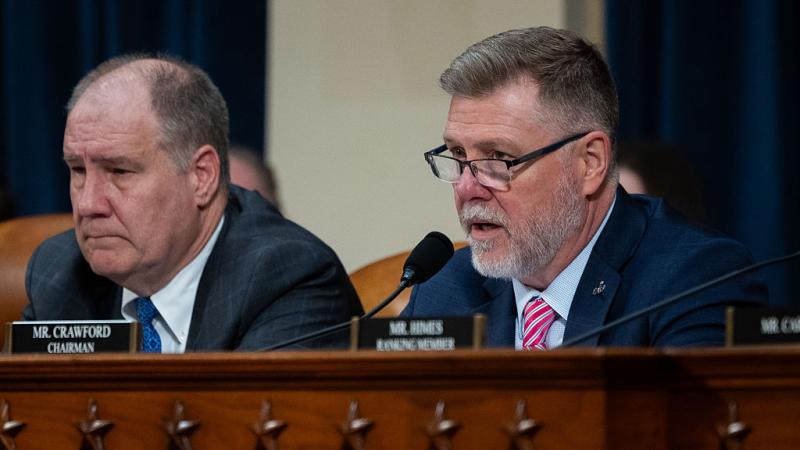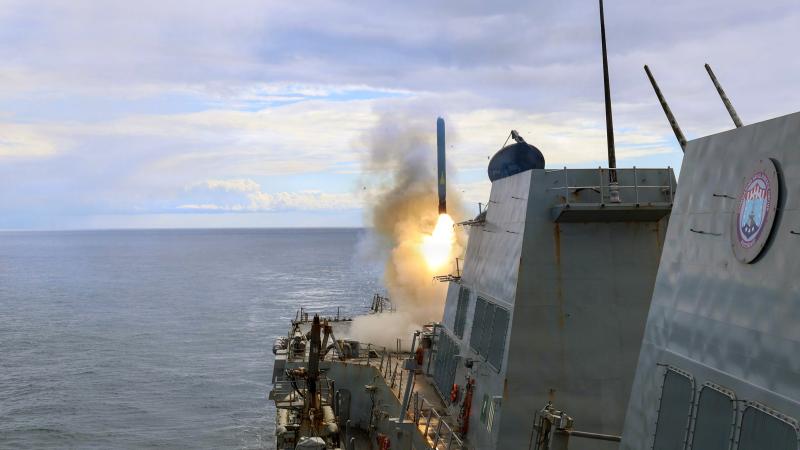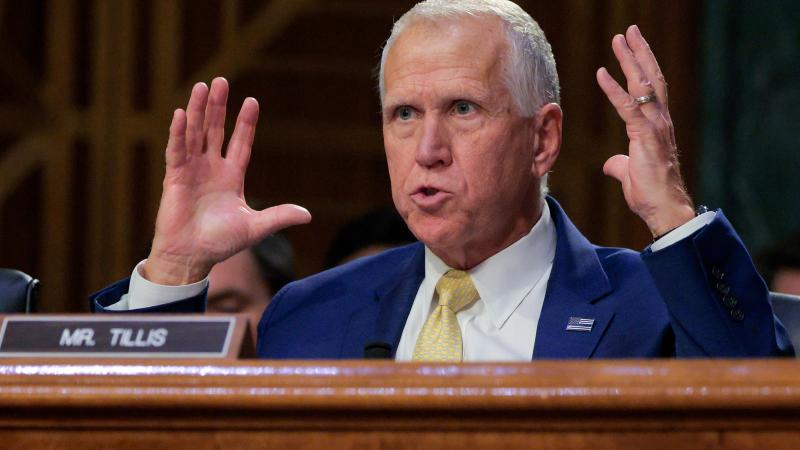Iraq accused of smuggling Iranian oil, which may end up in U.S. refineries and funding terrorism
A congressional letter to President Joe Biden, who has been accused of being lax on enforcing sanctions against Iran, warns that Iraq’s oil sector is being converted into a means by which Iran-aligned militia groups and Iran’s Islamic Revolutionary Guard generate terrorist financing.
Five GOP House lawmakers have written to President Joe Biden to express concerns about an Iraqi official’s invitation to speak on a Houston university campus on oil and gas investment opportunities in Iraq.
The lawmakers raised concerns that Iraqi Oil Minister Hayyan Abdul-Ghani and other officials in the Iraqi government may be involved in “industrial-scale sanctions on behalf of the regime in Iraq.” If the allegations are true, these illegal oil sales may be financing Iran-linked terrorist organizations.
Because of environmentalist opposition to building new refineries in the U.S., the last refinery capable of producing more than 100,000 barrels per day was built in 1977. Most of the existing refineries in the U.S. utilize types of crude oil that aren’t produced in the U.S., meaning much of the crude refined in the U.S. is imported. Every day, an average of approximately 200,000 barrels of crude oil and other petroleum products are imported from Iraq, some of it destined for U.S. refineries.
In a statement posted Sunday on its website, the Iraqi Ministry of Oil denied the allegations, saying it has "no basis in fact," and the organization deals only with reputable international companies, including American firms.
Evading sanctions
If the Iraqi government is helping Iran evade sanctions and funneling the profits to terrorist groups in the Middle East, U.S. companies -- and unwitting consumers -- are inadvertently funding these terrorist groups. And so long as environmental opposition prevents new energy projects from being built, American refining will continue to be dependent on crude oil imports from the Middle East.
The Biden administration has been accused of taking a lax attitude toward sanctions against Iranian oil. Rep. Steve Scalise, R-La., told Fox News in May that Biden was seeking to appease Iran, while at the same time attacking U.S. oil production.
“These are the consequences of the dangerous anti-American energy policies of Joe Biden. We could be making our own energy, supplying our friends all around the world with oil and natural gas, and it would hurt Vladimir Putin; it would hurt Iran, which by the way, also then hurts Hamas, Hezbollah, and any other terrorist organization around the world. This is part of Joe Biden’s legacy, and it’s a failed, failed foreign policy.”
Invitation
Abdul-Ghani will speak at an event at event organized by the State Department’s Bureau of Energy Resources, at Rice University in Houston on Sept. 9, according to the Washington Free Beacon. The purpose of the event is to encourage oil and gas companies to invest in Iraq.
In their letter to the president, Rep. French Hill, R-Ark. — along with Rep. Joe Wilson, R-S.C., Rep. Michael Watz, R-Fla., Rep. Michael V. Lawler, R-N.Y., and Kevin Hern, R-Okla. — explained that Iraq’s oil sector is being converted into a means by which militia groups aligned with Iran and Iran’s Islamic Revolutionary Guard generate terrorist financing.
Abdul-Ghani is among the Iraqi officials alleged to be involved in the scheme, and the lawmakers requested that the Biden administration deny his visa until the matter is fully investigated.
“It's unconscionable that they invited the Iraqi oil minister to the United States in light of what’s going on,” an energy advisor familiar with the issue told Just the News.
In its statement on the allegations, the Iraqi Ministry of Oil said that the country's oil sector is under constant scrutiny by oversight bodies, and that it would be impossible for Iran or its proxies to exert pressure on the ministry due to constitutional legal provisions.
"The claim that Iraq is assisting Iran in evading sanctions is another baseless allegation. Iraq`s dealings with Iran in the energy sector, particularly in gas and electricity imports, are conducted in coordination with our U.S. partners and under transparent, publicly available contracts. Payments to the Iranian side are made openly, with Iraq adhering to international law and building its relations with neighboring and other countries based on mutual respect and interests in line with international regulations. Iraq is in no way involved in any activities that violate these laws," the ministry said.
Michael Knight, senior fellow at The Washington Institute for Near East Policy, reported last month that the administration of Iraqi Prime Minister Mohammed Shia al-Sudani allocated quantities of government-owned fuel oil to Iraqi asphalt factories. These allocations far exceeded the facilities’ operating capacity, and this allowed the surplus to be diverted for illegal export. This is generating, according to the report, nearly $1 billion annually.
“This is enabling U.S.-designated terrorist entities to facilitate mass sanction evasion by allowing U.S.-sanctioned Iranian oil exports to reach the world market labeled as Iraqi oil,” the lawmakers wrote.
In his report, Knight proposed that foreign officials “keep monitoring this situation to ensure that U.S.-designated terrorist groups no longer profit from subsidized and diverted fuel oil.”
Blocking U.S. investment
The congressional letter also warns that the scale of the trade suggests that senior Iraq officials and their families, which includes the Iraqi Ministry of Oil and the Iraqi Ministry of Industry and Minerals, may be involved in helping to evade the sanctions.
“This includes overseeing and profiting from corruption surrounding the allocation of Iraqi fuel oil to companies owned or controlled by Asa’ib al-Haq (AAH), an Iranian-sponsored Iraqi organization that has been designated as a Foreign Terrorist Organization and Specially Designated Global Terrorist,” the letter stated.
The congressmen also noted past reports in the Wall Street Journal on Iraq using offshore oil-loading areas to mix terrorist-smuggled oil from Iran and label it as Iraqi products as another means to skirt sanctions.
The Sudani government also shut down the Iraq-Turkey oil pipeline, which the letter noted is holding up production from $5 billion in U.S. investments in the Kurdistan region. The Iraq Ministry of Oil has refused to open the pipeline.
“All of our oil production is currently blocked from the world market,” the energy advisor said, adding that it’s hypocritical for the Iraqis to be preventing U.S. investment from getting to the market while running a sector internally in Southern Iraq that’s profiting Iran and its proxies.
The letter asked the Biden administration to assess if individuals or entities have violated statutory Iran sanctions, or if they’ve engaged in criminal conduct related to terrorism sanctions. The legislators also requested that an assessment be conducted into whether violations of the SHIP Act have occurred. The act was included in the natural security supplemental appropriations legislation in April and mandates imposition of sanctions against facilities and vessels that facilitate the trade in petroleum products from Iran.
















